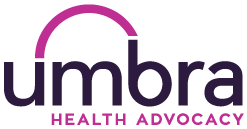All We Really Need to Know About Getting Good Healthcare, We Learned in Kindergarten

With a nod to Robert Fulghum...
As millions of youngsters head off to school, it reminds us that some of the lessons we learned in kindergarten can serve us well as we consider our healthcare throughout our lifetimes.
Here are some of those lessons:
1. Be respectful of your medical providers, and command their respect in return.
Early on, we learned to be polite and to stick up for ourselves. The same holds true for working with our healthcare providers.
It’s important to be respectful of their education and abilities. That means we listen carefully to what they tell us and take advantage of their knowledge.
It's also wise, though, not to respect them to the point where you discount your own gut feelings or intuition. Further, we need to remember that while they may have attended medical school, we are the owners of, and the best judges of, our own bodies. Forming a partnership with mutual respect works best.
Learn to create a good partnership, and to communicate well with your provider, a key aspect of getting the healthcare you deserve.
2. Make friends.
Whether in the classroom or on the playground, having a group of friends to lean on was important in the good times and the bad. That’s true for our healthcare too.
When you have a medical challenge, find others with similar challenges and get to know them. Share information among you, perhaps through support groups or others who share your diagnosis.
When healthcare times are tough, maybe a difficult diagnosis or problems making your treatment choices, then make friends with an independent advocate who can help you do things YOUR way.
3. Be honest and take responsibility.
Who doesn’t remember getting in trouble for some childhood indiscretion? We learned then that being truthful got us in to less trouble than if we tried to cover it up. The same goes for our healthcare and information sharing.
Be honest with your doctor and your advocate. Take responsibility for your actions. You can't be helped if you pretend you are doing one thing when reality shows otherwise.
4. Avoid bullies
We all knew those bullies in the schoolyard. They were arrogant and sometimes they were downright mean. To our best abilities, we learned to avoid them. And when it came to choosing friends, we shunned bullies and turned to other kids to befriend instead.
We can learn from those experiences when it comes to choosing our healthcare providers, too. Avoid arrogant doctors, who are arrogant because they value themselves above helping you. Instead choose a respectful one who offers far more collaboration and success. It's always good to walk away from bullies, no matter whether it's the playground, the exam room, or the hospital.
5. Follow directions.
This goes hand-in-hand with taking responsibility. When you and your doctor have agreed on a treatment plan, adhere to the instructions. Take all the pills in the bottle, don’t eat fat-laden foods, wear sunscreen; whatever your assignment is, follow through. After all, your doctor doesn't make those recommendations so they will be ignored. When you have agreed, then you need to keep up your end of the bargain.
Be wise about following those directions too. You may remember when your mother asked you whether you, too, would jump off a bridge just because your friends were jumping off a bridge. If you believe that following directions is causing a problem, such as difficult, unexpected side effects, or the expense of filling a prescription, then speak up, and ask the professionals to help you make adjustments.
6. Be curious.
Early on, we learned to read, ask questions, study and look things up in the library. Never were those skills more important than they are when you have a medical challenge.
Read everything you can, study cases similar to yours and look up words you don’t know. Ask questions of more than one professional, including your doctor, other professionals in your doctor's office, advocates, and other patients. Learn more about your diagnosis and treatment options on the Internet. Read the patient information that comes with any of your new drugs and prescriptions.
Your health can improve when you are curious.
....................
Some of the best tools we can use as patients were the basics we were taught to us as we were growing up. Putting them into practice will help us find our best medical outcomes.
What other lessons can you suggest?
Find a Health / Patient Advocate or Navigator
Learn more about The Alliance of Professional Health Advocates
